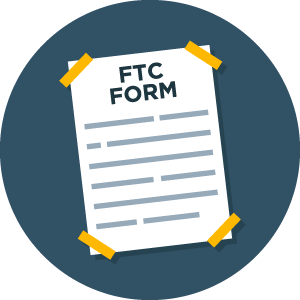Talk to Sales: (401) 200-6026
Don’t let missing vehicle disclosure forms stand in the way of a perfect dealership audit.
Vehicle disclosure forms are used so frequently that dealers sometimes forget how important they are to the car sales process, and like any compliance matters, they’re worth analyzing before you’re the victim of an unexpected audit.
Anytime you sell a used car, there’s paperwork that needs to accompany the deal to ensure compliance with state agencies and financial institutions. Not every state enforces the same regulations, but each state has their own set of vehicle disclosure laws that dealerships must obey to provide consumer protection and to ensure ethical business practices are upheld.
Be sure to file these three forms in every used car deal folder to maintain vehicle disclosure compliance.
1. Odometer Statement
Car buyers often use a vehicle’s mileage when trying to determine that they’re getting the best deal possible. To ensure accuracy and prevent milage tampering, dealerships in almost every state must provide an odometer disclosure statement at the time of purchase. A compliant odometer statement will have the numeric milage, vehicle information (year, make, model, and VIN), date of purchase, customer information, and signatures. It’s also important to check off one of the three declarations:
- The odometer reading is the actual mileage.
- The odometer reading reflects the amount of mileage in excess of its mechanical limits.
- The odometer reading is not actual mileage. WARNING – ODOMETER DISCREPANCY.
Dealers should always keep an original on file in the car’s deal folder, but copies should also be distributed to the car buyer, the RMV, and any financial institutions when a vehicle is financed. Some states require that odometer statements are notarized, so it’s essential to stay up to date on your local RMV requirements to maintain compliance.
2. FTC Buyer’s Guide
Any dealer that sells more than five units in a year must display the FTC Buyer’s Guide form and provide a copy to the consumer at the time of purchase. A buyer’s guide informs consumers about a vehicle’s warranty status (dealer, manufacturer, or third party), and also where to go to get vehicle recall and history information. A buyer’s guide must be displayed on each vehicle for sale, and the car buyer must receive a copy at the time of purchase. Audit-proof your deals by keeping a signed copy in the customer’s vehicle file. Dealerships that fail to comply with the Used Car Rule could face substantial penalties of $41,484 per violation.
3. Vehicle History Report
Car dealers should always provide a vehicle history report. While it’s not necessarily a legal requirement, it’s recommended that dealerships run a vehicle history report, such as a CARFAX, for every car they buy and sell. Some financial institutions history reports included in funding packages, but they’re also helpful in determining if a vehicle has a questionable past. Previous loaner, demo, or government vehicles may have more wear and tear than a traditionally owned car. Maybe there is an outstanding lien or previous accident on record. A vehicle history report can help dealerships stock their lot with confidence instead of uncovering stressful issues down the road.
While a vehicle history report isn’t legally required, certain vehicle disclosures are. Vehicles that are marked salvage or damaged may have a title branding stamp, but not all states handle titles the same way. Check with your state titling or registration agencies to make sure a Salvage or Damage Disclosure form isn’t required to maintain compliance.
Unexpected dealership audits can be stressful if you’re not prepared.
Car sales is an industry that is highly regulated to ensure consumer protection. Laws frequently change, and as we know with the FTC Buyer’s Guide rules, some fines are brutally expensive. Dealership managers need to make sure all sales related employees follow vehicle disclosure training to prevent costly mistakes as well as damage to their reputation.
-
Interested in an Affordable, Full-Featured Auto Dealer CRM?
Schedule an AutoRaptor Demo Now!





